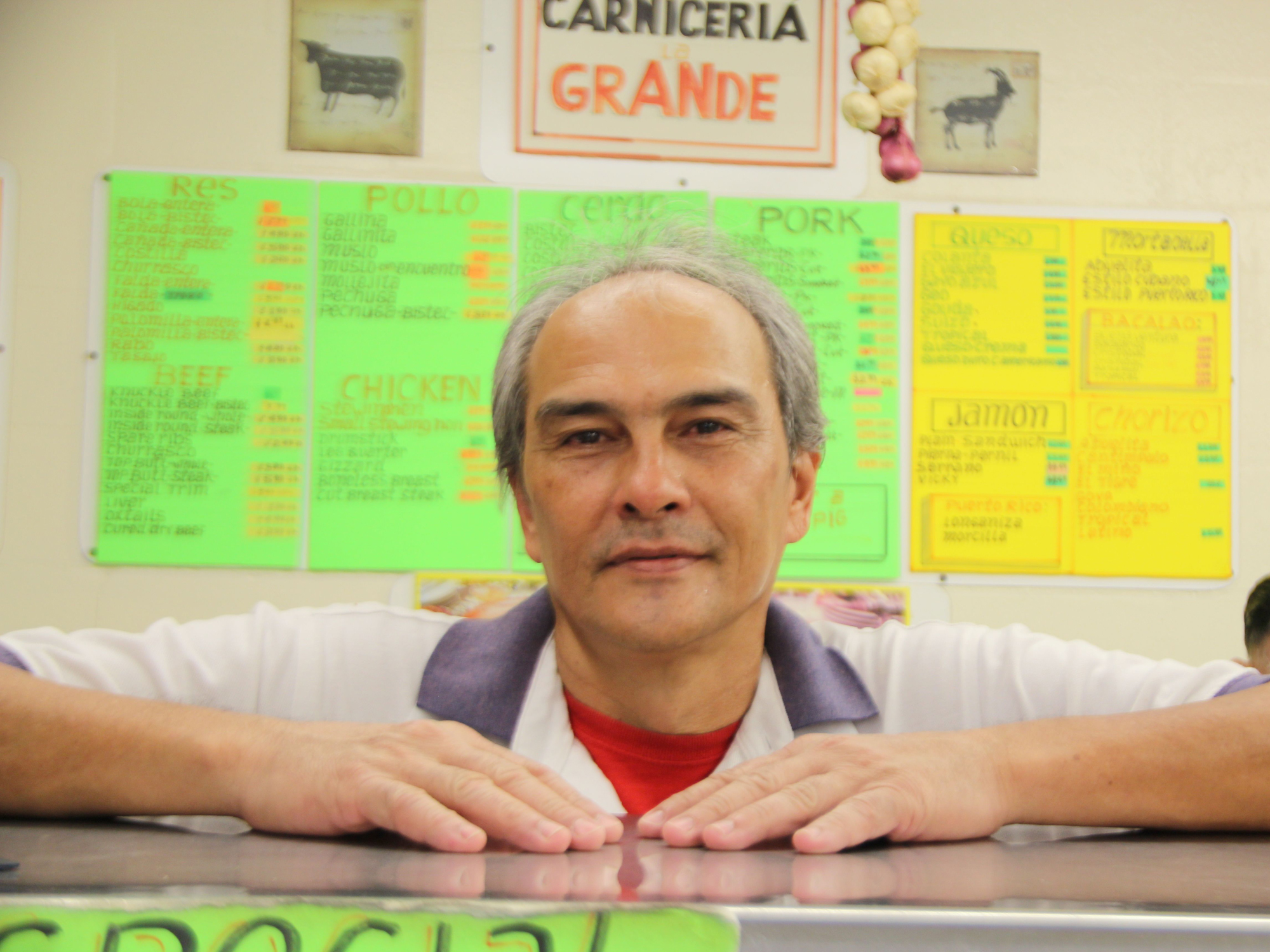Antonio Ramirez De La Cruz, best known as El Tio, is the butcher at Orlando Latin Market.
It was tough in the beginning. El Tio had just arrived from Havana, Cuba and had no experience in cutting meat before this job. Adjusting to life in the United States was also difficult for him.
“You think there are a lot of things that come easy, but it’s not that easy,” the 51-year-old recalled. “It’s different from everything. I’m not talking about the culture, but the system of life here, of the country… you also find a bit of rejection from the society.”
But El Tio found comfort at this job, this place — with its many Latino customers and their animated banter permeating every corner.
He was given this job by a man he calls Roli — Rolando, who managed the store for some time.
“I like auto mechanic work, paint, because that’s what I learned from my papa in Cuba,” he said. El Tio said he always handled anything car-related.
“But this part of fat, pork, of blood never interested me,” he said.
It’s been almost five years now and El Tio has learned a lot. He said he likes being a butcher.
“You have customers that you know well now. When you see a customer come in, you say ‘I have to make this kind of cut because the person likes it this way. I have to make this meat this way because that’s how they like it,'” he said. “You start knowing. The meat starts knowing the customer and vice versa.”
El Tio paused for only a second when asked about the role of meat in the Latino community. He thinks they’re the community that possibly consumes the most.
(LISTEN: El Tio talks in Spanish about the role of meat in Cuba)
“I don’t know but red meat — how Latinos love that! Especially Cubans who have had such a need for it in their lives — and I’m one of them,” he said. “It sells.”
El Tio remembered how difficult it was to get your hands on red meat in Cuba.
“In Cuba, red meat has always been a dilemma because it was prohibited… people who killed a cow would get 20 years in prison,” El Tio said. “It was prohibited because it wasn’t sold. Such scarcity for many years have caused the Cuban to see red meat and want it. It’s that anxiety to eat, to have that pleasure.”
El Tio said he sometimes encourages customers to come daily for their meat — that there’s no need to stock up on it. He added that some customers buy stacks of meat. He tells them they don’t have to do that.
“But it’s the anxiety to store it in case it runs out. Here, it doesn’t run out,” El Tio said. “This is permanent… this is year-round.”
